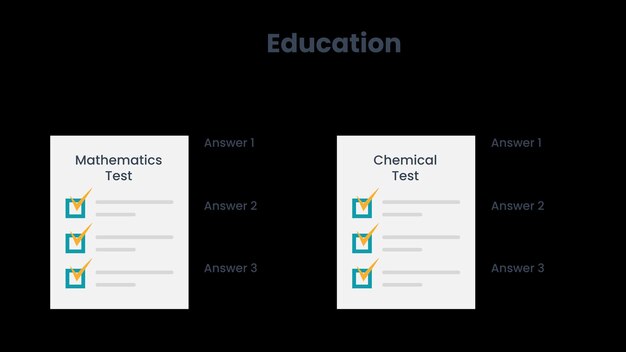Master’s vs. PhD: Maximizing Your ROI in Today’s Job Market

Anúncios
Choosing between a Master’s and a PhD requires careful consideration of career goals and financial implications, as the “best” degree for ROI depends on individual aspirations, industry demands, and the investment of time and resources.
Deciding between a Master’s and a PhD is a pivotal career move. But with so much at stake, how do you know which degree offers the best **Master’s vs. PhD: Which Degree Offers the Best ROI in the Current Job Market?**? This decision hinges on understanding your career aspirations and the financial implications of each path.
Anúncios
Master’s vs. PhD: An Overview
Before diving into ROI, let’s clarify what each degree entails. Both are postgraduate qualifications, but their focus and outcomes differ significantly. Understanding these core differences is crucial for making an informed decision about your future.
Master’s Degree: Focused Advancement
A Master’s degree typically aims to deepen your knowledge and skills within a specific field. It’s often seen as a direct path to career advancement or a change in career direction.
Anúncios
PhD: Research and Innovation
A PhD, or Doctor of Philosophy, is a research-intensive degree. PhD programs are designed to equip individuals with the skills to conduct original research, contribute to their field’s body of knowledge, and often pursue careers in academia or specialized research roles.
The choice between a Master’s and a PhD isn’t just about education; it’s about crafting your career trajectory. While a Master’s can enhance your marketability and salary in existing roles, a PhD can open doors to leadership and innovation opportunities. The decision requires a clear vision of your desired professional future and an understanding of the requirements of your industry.

Assessing the Cost of Each Degree
The financial cost is a significant factor when considering a Master’s or PhD. Tuition, fees, living expenses, and potential lost income during the study period all contribute to the overall investment.
Tuition and Fees
Master’s programs typically require 1-2 years of full-time study, while PhD programs often take 4-7 years. Tuition costs vary widely depending on the institution, program, and location. PhD programs may offer funding opportunities like grants, assistantships, and fellowships which could offset tuition and provide a stipend for living expenses.
Opportunity Cost
The “opportunity cost” is the income you forgo while studying instead of working full-time. This can be substantial, especially for PhD programs with their longer duration. Consider the value of lost wages when calculating the true cost of each degree.
- Master’s: Shorter duration, lower opportunity cost.
- PhD: Longer duration, potentially higher opportunity cost, but often with funding options.
- Consider: Weigh the cost of education against potential future earnings.
Beyond tuition and living expenses, consider the cost of books, research materials, conference travel (especially for PhDs), and professional development. Factor in potential debt accumulation and its long-term impact on your financial situation. Evaluate the availability of scholarships, grants, and loan forgiveness programs that can help offset these financial burdens. Be realistic about your ability to manage debt and create a budget that allows you to invest in your education without jeopardizing your financial stability.
ROI Factors: Salary Expectations
A key aspect of ROI is understanding the potential impact on your salary. Both Master’s and PhD degrees can lead to higher earning potential, but the returns vary significantly depending on the field and career path.
Master’s Degree Salary Boost
A Master’s degree often leads to a direct salary increase. Graduates are typically qualified for higher-paying positions and management roles. The specific increase varies by industry and experience.
PhD’s Long-Term Earning Potential
While PhD graduates may not see an immediate salary surge, their long-term earning potential can be substantial, especially in specialized fields. The ability to conduct independent research and lead innovation can lead to high-level positions in academia, research institutions, and private companies.
- Analyze: Research average salaries for specific roles in your field with each degree.
- Compare: Consider the time it takes to reach certain earning levels with each degree.
- Factor: Account for industry growth and demand for specialized skills.
When evaluating salary expectations, consider the specific industry you plan to work in. Some industries place a higher value on advanced degrees than others. Research the compensation trends for your desired roles and companies. Network with professionals in your field to gain insights into real-world salary expectations. Recognize that salary is not the only measure of ROI. Consider the value of job satisfaction, intellectual stimulation, and career advancement opportunities that each degree path offers.

Career Paths and Job Market Trends
The job market is constantly evolving, and different industries have varying demands for Master’s and PhD graduates. Understanding these trends is crucial for assessing the ROI of each degree.
Master’s for Practical Application
Master’s degrees are often favored in industries that require practical application of knowledge and specialized skills. These roles may include project management, data analysis, and engineering.
PhD for Innovation and Leadership
PhD graduates are typically sought after in roles that require research, innovation, and leadership, such as academia, pharmaceutical research, and government laboratories. They often drive innovation and shape the direction of their fields.
Research the specific job market trends in your field of interest. Identify companies and organizations that hire graduates with your desired degree. Analyze the skills and experiences that employers are seeking. Network with professionals in your field to gain insights into the current job market and future trends. Consider the potential impact of automation and artificial intelligence on your career path and choose a degree that equips you with skills that will remain in demand. Seek out internships, research opportunities, and industry collaborations to gain practical experience and enhance your marketability.
Non-Monetary Benefits of Each Degree
ROI isn’t solely about money. The intangible benefits of a Master’s or PhD can significantly enhance your career and personal life. Job satisfaction, intellectual stimulation, and personal growth are all valuable aspects to consider.
Master’s: Enhanced Marketability
A Master’s degree can enhance your marketability, open doors to new career opportunities, and provide a sense of accomplishment. It often leads to greater job security and advancement opportunities.
PhD: Intellectual Stimulation and Impact
A PhD offers the opportunity to delve deeply into a subject you’re passionate about, make a significant contribution to your field, and pursue a career that aligns with your intellectual interests. It can also lead to a greater sense of personal fulfillment.
- Consider: What are your personal and professional goals?
- Reflect: What kind of work environment do you thrive in?
- Evaluate: How important is intellectual stimulation to your career satisfaction?
Think about the kind of work environment you thrive in. Do you prefer collaborative projects or independent research? Do you value practical application or theoretical exploration? Consider the impact you want to have on your field and the world. Do you aspire to mentor students, conduct groundbreaking research, or develop innovative solutions? Acknowledge that career satisfaction and personal fulfillment can also significantly impact your overall well-being and career trajectory. Seek out opportunities for professional development, networking, and mentorship to maximize the non-monetary benefits of your chosen degree path.
Making the Right Decision for You
Ultimately, the “best” degree for ROI depends on your individual circumstances, career goals, and financial situation. There’s no one-size-fits-all answer. Carefully weigh the costs, benefits, and potential outcomes of each path to make an informed decision.
Assess Your Strengths and Interests
Consider your strengths, interests, and passions. What are you good at? What do you enjoy doing? What problems do you want to solve? Align your degree choice with your natural abilities and intrinsic motivations to increase your chances of success and satisfaction.
Talk to Professionals in Your Field
Network with professionals in your field to gain insights into their experiences and perspectives. Ask them about the value of a Master’s or PhD in their career paths. Seek advice from mentors and advisors who can provide guidance and support.
Your decision is a personal one that should reflect your unique aspirations and circumstances. A Master’s can enhance your expertise and accelerate career advancement, while a PhD can empower you to become a leader and innovator in your field. Assess your passions, consider your strengths, and consult with professionals to reach the best and most rewarding choice.
| Key Point | Brief Description |
|---|---|
| 🎓 Master’s Degree | Focuses on deepening knowledge and skills for career advancement. |
| 🔬 PhD Degree | Intensive research degree for contributing original knowledge. |
| 💰 ROI Factors | Includes salary, job satisfaction, and career opportunities. |
| 📈 Job Market Trends | Varying demands for Master’s and PhD graduates across industries. |
FAQ
▼
A Master’s degree typically takes one to two years of full-time study to complete, depending on the program structure and the institution that offers it.
▼
Earning a PhD usually takes between four to seven years, as it involves significant research and dissertation writing, reflecting its depth and complexity.
▼
A Master’s degree often provides a quicker return on investment due to its shorter duration and direct pathway to higher-paying jobs.
▼
Yes, PhD programs often offer funding opportunities such as grants, assistantships, and fellowships, which can significantly reduce the financial burden.
▼
The key non-monetary benefits of a PhD include intellectual stimulation, opportunities for impactful research, and enhanced career opportunities in specialized fields.
Conclusion
Choosing between a Master’s and a PhD is a significant decision that requires careful consideration of your career goals, financial situation, and personal aspirations. Both degrees offer unique benefits, and the “best” choice depends on your individual circumstances. By weighing the costs, benefits, and potential outcomes of each path, you can make an informed decision that aligns with your long-term success and satisfaction.





